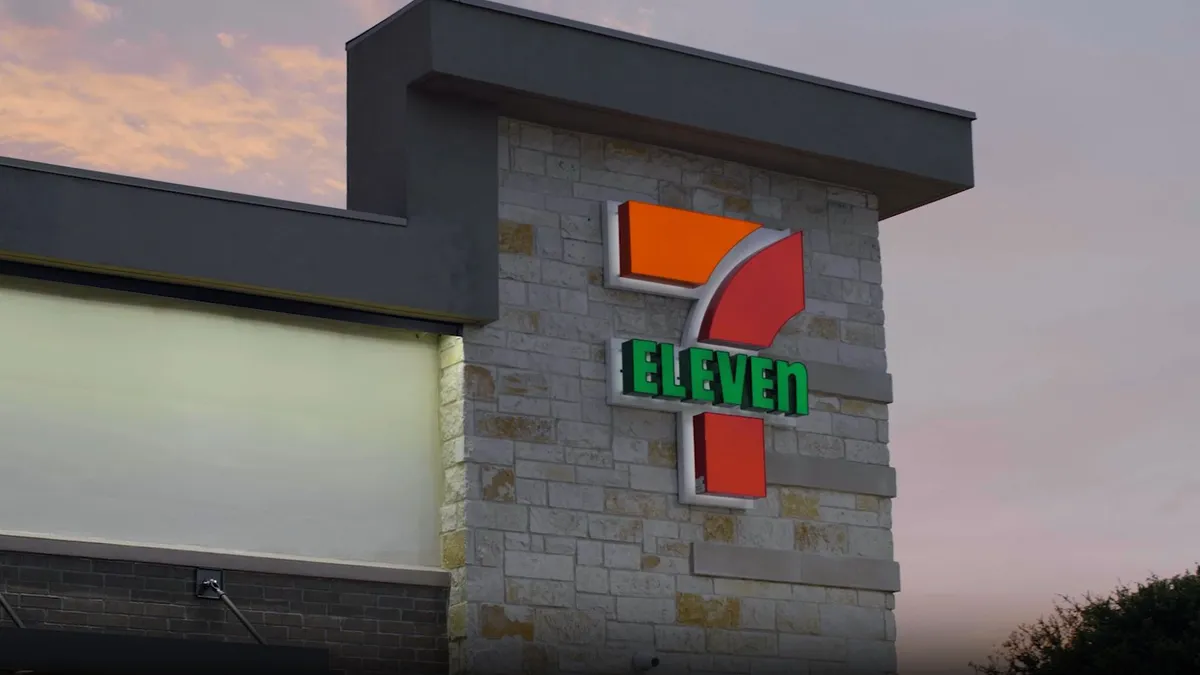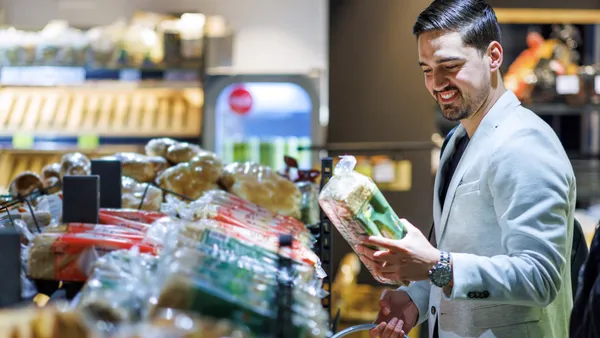Dive Brief:
- 7-Eleven Inc. continues to grow its proprietary food and beverage options, according to its parent company Seven & i’s first-quarter earnings presentation on Thursday.
- The U.S. arm of the global c-store giant is making a push with its refreshed coffee program. The company has rolled out the proprietary offering to more than 4,800 stores so far and expects to continue expanding it through the rest of the year.
- Additionally, 7-Eleven is continuing its focus on its private label line, with plans to add 150 new products this year, including oat milk smoothies, sparkling water and tortilla chips.
Dive Insight:
This focus on proprietary items is a central pillar of the company’s 2030 goal, which Seven & i updated earlier this year to specify it wants to be “a world-class retail group centered around its food.” It also aims to have 34% of its sales be from proprietary items by 2025, with 25% coming from fresh food and drinks and 8% from private label goods.
In support of this foodservice focus, 7-Eleven supplier Warabeya Nichiyo, which produces commissary foods, plans to open new facilities in Virginia later this year, Ohio next year and California in 2025.
As for the coffee program, 7-Eleven is rolling out bean-to-cup machines along with specialty and iced coffee options to stores as it modernizes its offering. It’s also increasing the baked goods and grab-and-go cases in those stores.
The percentage of 7-Eleven’s sales made up of proprietary products grew 20 basis points year over year in Q1. Overall U.S. existing-store merchandise sales grew 4.7%, and margins bumped up slightly.
Part of the appeal of private label for Seven & i is the same as its appeal for customers — the price point. As more consumers trade down out of inflation worries and tightening wallets, 7-Eleven is looking to its private brands to offer high-quality items at a lower price point and better margin than national brands, the company said in its Q1 earnings presentation. 7-Eleven boasted more than 1,300 private label items as of March.
Total sales for Seven & i were higher in Q1 of 2023 than the same period last year, but profits were down 20% and earnings before interest, taxes, depreciation and amortization (EBITDA) fell around 6%. Overseas convenience retail accounted for the losses, impacted significantly by slimmer fuel margins but also by increases in spending on land and rent, utilities and other areas, the earnings report showed.
The company’s performance has been in the spotlight more than usual lately thanks to activist investor ValueAct, which says the company’s conglomerate structure holds it back and wants spin out the c-store business into a separate company. The company’s slate of board member candidates failed to get enough votes at a recent shareholder meeting.
Irving, Texas-based 7-Eleven Inc. owns, licenses or franchises about 13,000 locations in North America, and its loyalty program has more than 50 million members.












